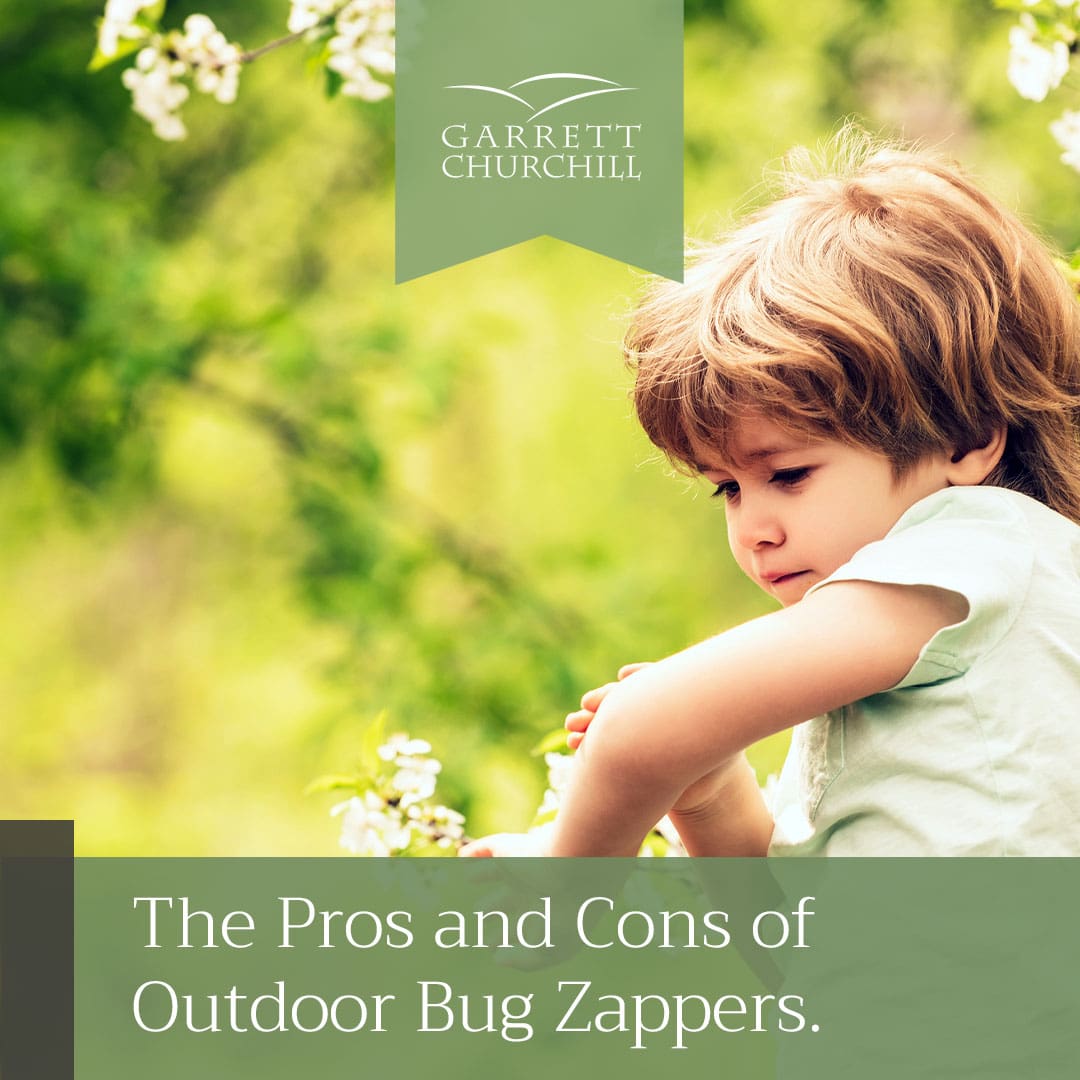The Pros and Cons of Outdoor Bug Zappers
With the arrival of summer, many of us anticipate spending sunny days and warm evenings putting those well-designed outdoor spaces to use. After all, who doesn’t love hanging out on a deck or patio amidst the company of loved ones?
Friends and family members probably aren’t the only visitors you’ll get over the next few months, though. One not-so-fun element of summer? Those pesky mosquitoes.
While electric insect killers, or bug zappers, are a commonly used pest control method among property owners, you may be surprised to learn that they’re not actually that effective—they can even be harmful.
Keep reading to find out why outdoor bug zappers may not be the best addition to your yard.
Not All Bugs Are Bad
Sure, bug zappers are efficient at killing bugs… but not all bugs need to be zapped! In fact, killing the wrong bugs can actually do more harm than good.
Many of those critters are crucial for pollination, preying on pests, and maintaining balance in your backyard ecosystem. Bugs you don’t want to get rid of include wasps, ladybugs, moths, bees, butterflies, beetles, and more.
In a study from the University of Delaware, six outdoor bug zappers were tracked over a 10-week period. While 13,789 insects were killed, only 31 of them were mosquitos or other biting flies.
“Even if targeted biting flies were effectively controlled by electric zappers,” quotes the study, “the resulting destruction of thousands of parasitoids, predators, aquatic insects, and other members of the nocturnally active fauna would be difficult to justify.”
In other words: your outdoor bug zapper could very well be killing off thousands of beneficial bugs—and not doing much for your mosquito problem at all.
Benefits of Outdoor Bug Zappers
Still, there’s a reason for the continued widespread use of outdoor bug zappers.
Benefits of bug zappers include:
- They’re good at killing bugs.
- They’re chemical-free.
- They’re hands-free; you don’t have to get up close and personal with any of the creepy crawly critters.
Bug zappers work by using those bright UV lights to attract and then electrocute bugs. But if mosquitos aren’t even attracted to those lights, are bug zappers really doing us a favor? Additionally, the goal should be more focused on pushing pests away, rather than pulling them in.
Disadvantages of Outdoor Bug Zappers
Reasons to steer clear of bug zappers include:
- They can attract pests that wouldn’t have otherwise been drawn to your property.
- They require regular cleaning.
- They can spread disease. By electrocuting bugs with such a strong force, some of those bug guts, legs, or wings can be misted as far as 7 feet. (Gross.)
- They can kill the wrong bugs.
According to University of Florida professor Jonathan Day: “We’re in a big enough crisis with colony collapse with honey bees that I think anything that impacts a beneficial insect population is problematic.”
Alternative Pest Control Options
Of course, discontinuing the use of your bug zapper doesn’t mean that you have to accept mosquito bites with open arms.
Some alternative pest control options include:
- Bug repellant sprays
- Mosquito control gear
- Fans (after all, those tiny insects can’t compete with a strong breeze)
- Removing any standing water that can attract mosquitos and other pests
- Trimming back thick shrubs that act as an optimal breeding ground for pests
- Planting pest-repelling flowers and herbs including basil, thyme, rosemary, lemongrass, dill, and more
For more pest prevention tips, check out our blog: A Gardener’s Guide to Pest Control and Prevention.
Strategic landscaping choices, such as drainage solutions, tree and shrub trimming, and pest-repelling plants, can make a world of difference when it comes to keeping your yard free of pests.
If you’re interested in hiring a landscaper to enhance your yard, look no further. Our creative professionals provide dependable expertise from concept to completion. Learn more at http://garrettchurchill.local/
